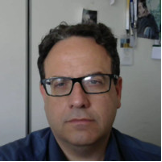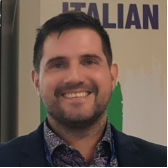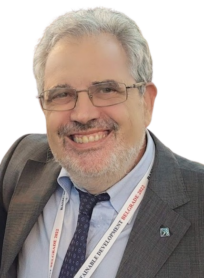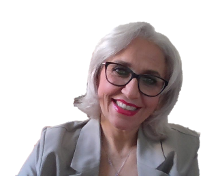
Panel - Energy Poverty, Renewable Energy Communities, and Emerging Models of Energy Access
IEEE IHTC 2024
Panel Coordinator: Energy Systems Development Department, Ricerca sul Sistema Energetico, Milan
Introduce and Moderate: Debora Cilio – Energy Systems Development Department, Ricerca sul Sistema Energetico, Milan
In a global context increasingly shaped by the need for energy security, counterbalanced by growing awareness of the environmental and climate impacts of ever more intensive energy use, the need for accessible and sustainable energy has become one of the most challenging social objectives.
For instance, as early as the Abu Dhabi Declaration (2012) – drafted as part of the UN’s “Sustainable Energy for All” initiative – it was recognized that “universal access to energy is a human right,” a statement that became one of the strategic goals (Goal 7) of the 2030 Agenda for Sustainable Development, adopted by the United Nations in 2015. This goal is closely linked to Goal 1 (end poverty) of the same document, as well as to Goals 10 (reduce inequality), 11 (sustainable cities and communities), and 13 (climate action), especially within an interpretive framework that views energy poverty – defined as limited or unreliable access to modern, sustainable energy services – as a global problem.
While progress has been made, according to data from key international agencies (IEA, World Bank, IRENA), in 2023, approximately 675 million people worldwide, the majority in Sub-Saharan Africa, still lack access to electricity, and 2.3 billion people rely on fuels such as wood, coal, and agricultural residues for cooking, with significant repercussions on health and the environment.
At the European level, the Clean Energy Package – through EU directives 2018/2001 and 2019/944 – introduced the concept of renewable energy communities into Union law, directly linking it to the fight against energy poverty and the protection of “vulnerable customers.” The aim is to encourage Member States to develop concrete measures to ensure equitable energy access in line with decarbonization and social inclusion objectives.
These measures are fully integrated into the 2019 National Integrated Energy and Climate Plan, which, in aiming to meet Europe’s 2030 goals, outlines specific actions to improve energy efficiency, increase the use of renewable sources, and “reduce the energy burden on vulnerable households.” This is to be achieved in part through the expansion of renewable energy communities, which focus on collective action and offer citizens the opportunity to become active participants in the production and distribution of renewable energy at the local level.
With this context in mind, the panel promotes a multidisciplinary exchange between researchers and scholars on the topic of energy poverty and the new tools and policies aimed at mitigating and combating it, with particular attention to renewable energy communities and new forms of energy collectivization.
Common Challenges in Electrification and Energy Transition
Federico Aleotti, Energy Systems Development Department, Ricerca sul Sistema Energetico, Milan
Energy Poverty and Renewable Energy Communities: Challenges and Opportunities for a Just Transition
Gabriella De Maio, University of Naples Federico II
Energy Poverty and Energy Prosumerism in Europe and Africa: Some Insights
Ivano Scotti, University of Naples Federico II
Renewable Energy Communities as a tool for social acceptance: what is working and what is not?
Alessandra Motz, Institute for Economic Research (IRE)
Introducing the next generation of managers to support social issues in sustainable investments through renewable energy communities
Nicola Sorrentino, University of Calabria
Company Insights
Energy communities and mini-grids for developed and emerging markets: benefits and challenges of local energy sharing models
Carlo Tacconelli, EnGreen
Renewable Energy Community: tools and opportunities for a sustainable transition
Fabio Armanasco, Kairoscope
A new prosperity for world peace: the role of models in quantifying the impact of the renewable energy transition. The approach of the Club of Rome from “The Limits to Growth” (1972) to “Earth for All” (2022)
Ugo Bardi, University of Florence
Gabriella De Maio
GABRIELLA DE MAIO, Professor of Energy Law at the Department of Law, University of Naples Federico II, DSS GIUR 08/A, author of the book “Energy Poverty and Renewable Energy Communities: Challenges and Opportunities for a Just Transition“, Scientific Editions. She is co-author of the del Policy Brief “Policy Direction for Sustainable Communities and combating energy poverty”, 2021, Task Force 2 “Climate Change, Sustainable Energy and Environment” for G20. She is a component of the Italian Observatory on Energy Poverty (OIPE), the National Center for Sustainable Mobility (CN MOST) and the Research and Innovation Program “Network 4 Energy Sustainable Transition” (PE NEST). (CONFIRMED)
Ivano Scotti
IVANO SCOTTI, Ivano Scotti is a researcher (Rtd A) at the Department of Social Sciences at the University of Naples Federico II. His research interests primarily focus on environmental sociology. In this field, he has published contributions on the topic of energy transition, particularly addressing professions in the wind sector, local opposition to green installations, and alternative forms of energy provision. He has published articles in national and international journals, including Energy Policy, Innovation, Journal of Rural Studies, Meridiana, Quaderni di Sociologia, Rassegna Italiana di Sociologia, Rural Sociology, Urban and Rural Sociology, and Sustainability. He is currently involved in research projects on energy topics such as energy communities, agrivoltaics, and energy innovation in Africa. (CONFIRMED)
Nicola Sorrentino
NICOLA SORRENTINO, Associate Professor of Electric Power Systems (IIND-08/B) at the Department of Mechanical, Energy, and Management Engineering (DIMEG) at the University of Calabria (UNICAL), conducts technical/experimental research in the fields of smart and micro grids, renewable energy communities, electricity and ancillary services markets. He was reference person of UNICAL for H2020 financed project on these themes. (CONFIRMED)
Federico Aleotti
FEDERICO ALEOTTI, Researcher at the Energy System Development Department at RSE SpA, with hands-on experience in rural electrification, as well as the design and implementation of microgrids in East Africa. (CONFIRMED)
Carlo Tacconelli
CARLO TACCONELLI, PhD in Energy and Environment from Sapienza University of Rome, founder of EnGreen. Author of several publications, with experience as a technical consultant in Africa and Latin America for the creation and operation of hybrid solar mini grids, with experience in the field of international cooperation. (CONFIRMED)
Fabio Armanasco
Fabio started his career in 2007 as researcher at CESI (Centro Elettrotecnico Sperimentale Italiano) renamed as RSE (Ricerca sul Sistema Energetico) following a corporate restructure. His experience developed over the years from manager and coordinator of research activities focusing on the study and development of polygenerative systems (heat – electricity – refrigeration) in the field of distributed energy generation contextually to renewable sources and, more generally, to energy conversion plants and their components. Over the years Fabio has been responsible for several RdS (Ricerca di Sistema) projects including “Small energy conversion plants”, “Technologies for the electrification of end uses”, “Energy Communities” and “The user at the centre of the energy transition”. Since the beginning of 2023, he has been Director of the Think Green Division for Power Energia, one of the most important Italian cooperative companies for electricity supply. At the end of 2023 he co-founded Kairoscope, a company focused on offering specialized energy services and bespoke consulting to support energy and ecological transition and sustainability. He is currently in charge as Chief Executive Officer. Author and contributor to several national and international articles and papers and often speaker at conferences, workshops and seminars. CONFIRMED
Ugo Bardi
Ugo Bardi started his career in physical chemistry focusing is interest on materials science, but in time he moved his interests towards energy and sustainability with a particular interest in mineral resources, especially oil and other fossil resources and their effect on climate change. He works also on renewable energy, mineral extraction, water production and remediation, especially from a systemic viewpoint. He works also on waste management and recycling. Author of more than 200 papers in international journals and a large number of presentations at national and international meetings. He is the author of the books, “The Limits to Growth Revisited” (Springer 2011) “Extracted,” Chelsea Greeen, 2014). “The Seneca Effect,” Springer 2017, “Before the Collapse” Springer 2019. “The Empty Sea” (2020), Springer and “Limits and Beyond” (2022) Expat Press. He is a full member of the Club of Rome, of the World Academy of Art and Science, and of other scientific societies and institutes.
Debora Cilio
DEBORA CILIO, Researcher at the Energy System Development Department at RSE SpA since 2023, Sociologist DSS SPS/10, PhD in Science, Technology, and Society, with research experience on the socio-environmental impacts of the energy transition, currently engaged in the topic of the Social Impact of Renewable Energy Communities. Author of scholarly articles and paper pertaining to her areas of research.









